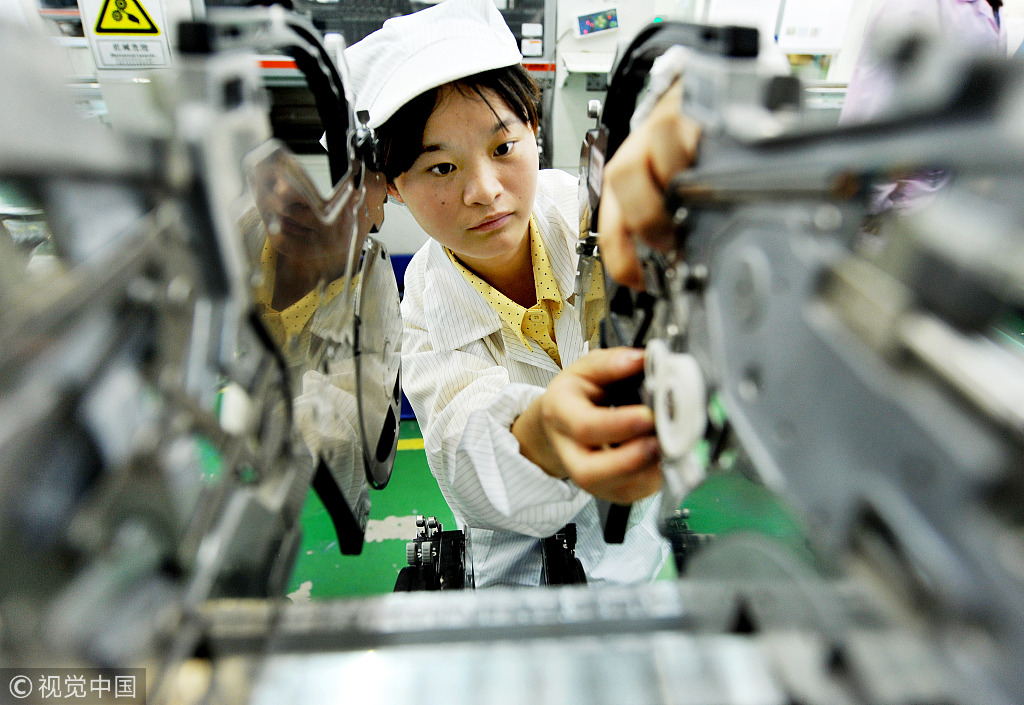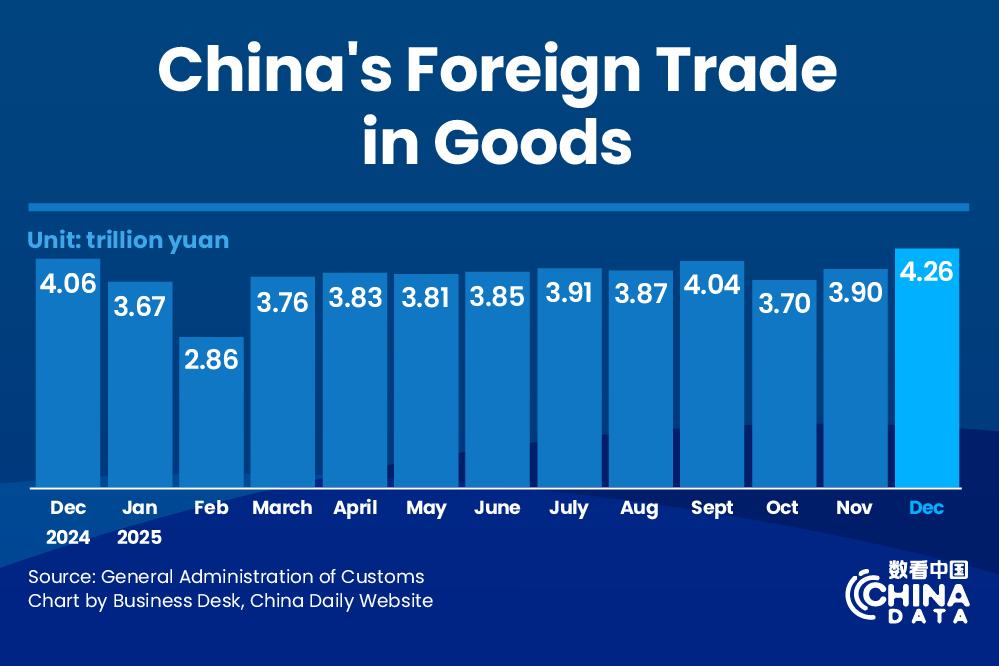Chinese economy to gain steam, experts say


China's economy will gain momentum later this year, although the global outlook will remain uncertain, according to leading economists.
Stephen Roach, senior fellow at Yale University's Jackson Institute for Global Affairs and a former Asia head of investment bank Morgan Stanley, believes there is already a move away from the negative sentiment about the world's second-largest economy at the end of last year.
"There is a possibility of further downward pressure for another few months, but by midyear the worse will be over," he said.
China's GDP growth was 6.6 percent in 2018, dragged down by a fourth-quarter increase of just 6.4 percent. In the Government Work Report delivered on March 5 to the National People's Congress, the country's top legislature, Premier Li Keqiang set a target range of 6 to 6.5 percent to be achieved this year.
Roach said, "The low point could be the first quarter this year, but I expect a slight improvement in the second quarter, and by the third quarter the economy will be on target."
Andrew Sheng, distinguished fellow at the Asia Global Institute at the University of Hong Kong, believes the increase in consumer confidence in China in January will herald a recovery in growth.
"You could see a very big revival in consumption in January. This was partly related to the stock market revival. Although there was pessimism at the end of last year, it is important never to underestimate the resilience of the Chinese economy," said Sheng.
David Rubenstein, co-founder and co-executive chairman of US global investment company The Carlyle Group, was bullish about the China economy.
"The economy is in pretty good shape, and I believe a trade agreement would propel it forward. We would love to have this type of growth in the US," said Rubenstein, who, like Roach and Sheng, spoke to China Daily during the recent China Development Forum in Beijing.
However, the global outlook remains uncertain with the US economy slowing down, Europe sluggish and issues such as US-China trade conflict and the prospect of Brexit adding to worries.
"Everywhere you turn there is uncertainty," said Michael Spence, professor of economics at the Stern School of Business at New York University and a Nobel Prize winner for economics.
"A global recession is still not, in my view, the most likely scenario, although it wouldn't take a huge shock to take us over the edge."
Roach, a longtime observer of the China economy, was also concerned about the overall global position.
"The US economy has gone from 4 percent (GDP growth) in the second quarter of last year to 3 percent in the third, 2 percent in the fourth and now it looks like 1 percent in the first quarter of this year," he said.
"The global outlook is also tough. Europe is weak and so is Japan, which could be lapsing back into another recession, and who knows about Brexit? What is disconcerting is that it comes at a time when there is very little space for central banks or fiscal authorities to ease policy aggressively."
Charles-Edouard Bouee, CEO of management consultants Roland Berger, said increasing inequality in the West was also worrisome.
Bouee said the lack of a resolution over Brexit was not helping, with the prospect of the UK crashing out of the EU without a deal not ruled out.
"It is like someone saying he is going to die tomorrow but he is still around. We don't know if he is going to die and the doctor doesn't know whether he is really sick," he said.
One of the major concerns remains the lack of productivity growth since the global financial crisis more than a decade ago, which is constraining any improvement of living standards globally and leading to political disquiet.
Rubenstein said China is making progress in upgrading its economy, which should deliver greater productivity for its economy in the longer term.
"Nothing works overnight, but I think China is doing a very good job of focusing industries they want to be leaders in, artificial intelligence being one and robotics another," he said.
Lawrence Summers, a former US Treasury Secretary, reflected on China's economic success at an event in Beijing.
He said China's economic transformation in recent years was even more dramatic than Britain's Industrial Revolution, which began in the mid-18th century and created the first modern industrial nation.
"When the history of the first half of the 21st century is written, it will be about China. China has one-fifth of the world's population, and has experienced redistribution from an impoverished nation to a nation setting the pace, from an entirely closed one to one that boasts the most internet users in the world," he said.




































